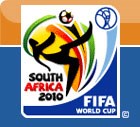
Top stories






More news

















Logistics & Transport
Uganda plans new rail link to Tanzania for mineral export boost










With 28 billion cumulative viewers having watched the soccer tournament around the world, the value of South Africa's exposure is R1.5 billion. In addition, the opening and closing ceremonies, newspaper and magazine coverage, TV coverage in the form of pre-world cup documentaries on BBC, SkyNews, CNN, and ZDF work to raise that figure considerably.
Marketing and media analyst Chris Moerdyk has calculated the offline and TV coverage of Brand South Africa as lying anywhere between R800 million and R2 billion. His calculations are based on the fact that, for each of the 64 matches of the 2010 FIFA World Cup, the international broadcasters had to commit two minutes towards marketing South Africa.
According to Tim Shier, MD of BrandsEye, one of South Africa's leading online tracking software providers, the company was most interested to tune into the mentions about South Africa that were taking place on the Internet. BBC News Online ran 120 different stories, while The Washington Post online ran 48 stories during the month long tournament.
However, the most interesting findings online are those that indicate that the 2010 FIFA World Cup South Africa witnessed a new level of digital engagement from fans across the globe. FIFA states in a press release, "The level of demand for online content surpassed the organisation's expectations. FIFA.com attended to three times more unique users than in 2006, serving pages to 150 million people over the course of the world cup. It exceeded forecasts for page impressions by 1.5 billion."
An extraordinary amount of attention was paid to South Africa and the adept management of the tournament via the online discussions about football, as well as about the cultural artefacts like the vuvuzela and the makarapa. This was expressed in the form of millions of Twitter messages, blog posts and comment streams on articles posted on official news sites.
On Wednesday, 9 June 2010, (the day before the world cup kicked off), the word "vuvuzela" became an international trending topic on Twitter. This was a spin off of an offline event that had millions of South Africans pouring onto the streets and blowing their vuvuzelas in anticipation of the big opening game the following day.
From the company's tracking data it was clear that the conversation proceeded to pick up momentum as the competition progressed and South Africa proved to be able to stage a successful tournament. The total reach for conversations discussing South Africa in relation to the world cup in July was 147 880 000 people, with the estimated AVE value of this online 'coverage' equating to R29.5 million. This excludes all mentions of SA that were not directly related to the Cup and is the equivalent of how much South African Tourism, or other local agency would have had to pay to secure the same amount of space in advertising terms.
Literally the whole world was talking, with the US accounting for 58% of mentions, followed by the UK with 10%, and SA coming in third with 8%. Significant volumes of mentions were streaming in from across the globe in Canada, Australia, Germany, India, Netherlands, Singapore and Italy.
Moerdyk says, "Never before has South Africa had so much positive publicity. One cannot overestimate the value of third-party testimonials as one of marketing's most powerful weapons."
Across the conversation, 55% of mentions were strongly positive, 5% were negative and 40% were neutral or an objective listing.
BrandsEye found that social networking site Twitter dominated the conversation, as could be expected, with 48% of the mentions coming from Twitter. Several highly influential foreign Twitter users had great things to say about South Africa. For example, a user based in India (@bhoglerharsha with over 35 000 followers) tweeted: "I think South Africa has made a very strong case for the 2020 Olympics. Good infrastructure, Soccer City top stadium."
Another influential Twitter account, Sports Illustrated, issued a tweet to its 284 495 followers which links to a very positive article about South Africa's hosting of the world cup 'Fifty post-World Cup observations'.
Just days before the world cup, local and international media had been increasingly scathing towards the host nation. Issues, as reported by mediatenor.co.za, such as transport, human trafficking, fake tickets, safety and security, as well as the costs of accommodation, were all raised with intensified scrutiny.
When the time came, however, we South Africans all felt it, it was indeed here, and now, a few days after the great spectacle drew to a triumphant close, that feeling is all the more exquisite as a memory.